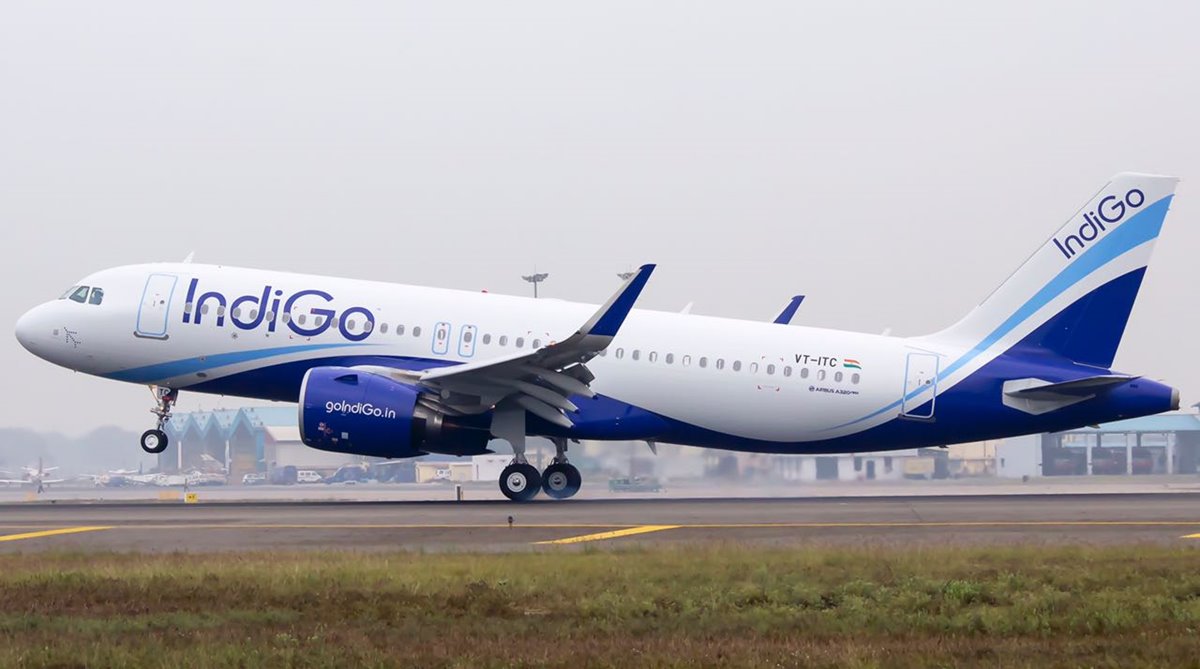Air India flight diverted to Canada over bomb threat
An Air India flight from New Delhi to Chicago was on Tuesday diverted to Canada after receiving a bomb threat which was posted online
Those who had expected a revived Jet Airways to offer competition to the two other full-service airlines, Air India and Vistara, which are due to merge and will become a powerful monopoly, will have to wait longer.

Representational image. (Photo: Facebook/IndiGo official page)
Three developments in the past few days are pointers to emerging trends in India’s aviation industry that the domestic traveller would do well to monitor, even if there is little she or he can do about them. The first was the resignation of Sanjiv Kapoor, the CEO-designate of Jet Airways who was expected to bring the bankrupt full-service airline back to Indian skies. With the transfer of ownership of the once-admired airline to a consortium having been interminably delayed, Mr. Kapoor’s resignation will further queer the pitch.
Those who had expected a revived Jet Airways to offer competition to the two other full-service airlines, Air India and Vistara, which are due to merge and will become a powerful monopoly, will have to wait longer. The second development was the announcement that Air India and Vistara have reached an interline agreement, in itself not very significant as such arrangements are commonplace.
But it does suggest that the two airlines are well on the course to the full merger, which is expected to take place by March 2024. The third development was the bankruptcy filing by the Wadiaowned Go First airline, one that was claimed by the company to have been caused by the refusal of American engine manufacturer Pratt & Whitney to honour the award of an arbitral tribunal and provide engines to operate its grounded aircraft. With Go First having suspended operations, temporarily it is hoped, and with SpiceJet having reported the largest drop in market share ~ from 10.2 to 6.9 per cent in March, even as the domestic airline industry recorded a huge year-on-year growth ~ it is clear that the budget airline space is also moving towards a monopoly, one that is controlled by Indigo which saw its market share increase to 55.7 per cent in all. These figures mean that Indigo controls almost threefourths of the budget carrier seats in the country, while the Tatas have a complete monopoly on fullservice seats.
Advertisement
And the impact is already being felt, for even as more Indians take to the skies, domestic air fares are projected to go through the roof. This is where an effective regulator must step in. Last August, Civil Aviation minister Jyotiraditya Scindia lifted the cap on domestic fares that were put in place during the pandemic. Fares have soared in the months since. Anecdotal evidence suggests business class fares have moved up from the Rs 20,000-30,000 band to the Rs 40,000-50,000 band on key domestic routes, and economy class fares from the Rs 5,000- 7,000 band to the Rs 8,000-12,000 band.
These are worrying trends because they will adversely impact the national thrust on domestic air connectivity. The Prime Minister, who has spearheaded this thrust, would do well not to leave the regulation of fares to the mercy of his minister
Advertisement